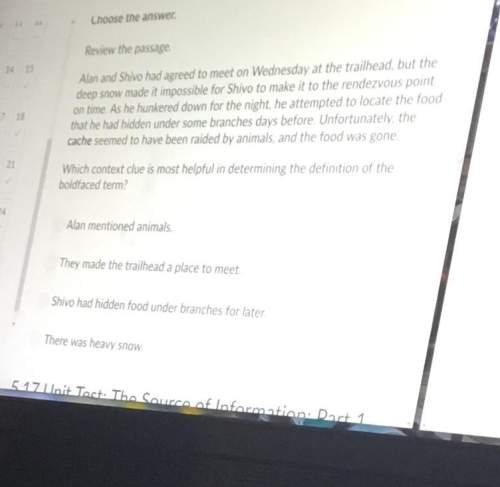Question 4
Original passage
Most of what visitors to Pompeii see today reflects only on...

English, 21.04.2020 20:44 alyssacruz999
Question 4
Original passage
Most of what visitors to Pompeii see today reflects only one moment in the city's history, how it looked in A. D. 79 when it was buried by volcanic ash from the eruption of Mount Vesuvius. We are now learning about the history of this block, from its beginnings more than four hundred years earlier. We can show how it was first occupied in the fourth century B. C., filled in with modest houses and workshops in the second century B. C., bombarded by a Roman army a century later, then came to be dominated by a single luxurious residence surrounded by bars and shops. Many of the questions we are asking are new ones, about the origins of the city: when its streets were laid out, how the densely packed townscape of A. D. 79 came into being, the relationships between rich and poor, and how the masses earned a living.
From Rick Jones, "Pompeii's Block of Time." Archaeology July/August 2003: 23-24.
SUMMARY: Jones recounts how archaeologists are uncovering the history of a block and its residents in Pompeii from when it was first settled in the fourth century B. C. through the eruption of Mount Vesuvius in A. D. 79. At first the block was populated by simple homes and workshops, but it later had only one lavish home with bars and shops around it (23-24).
Question 4 options:
effective
ineffective

Answers: 3
Another question on English

English, 21.06.2019 17:30
Read the excerpt from dominique’s personal narrative. tired of waiting for the bus, which was late for the fifth day in a row, i sat leafing through an old magazine i had stuffed in my purse the previous night. it was terribly warm for a september afternoon, and the sun cast fleeting shadows on the bus stop sign with each car that passed. i wondered when the weather would get cooler and when the new bus driver would start arriving on time. it was about then that i first noticed the apparent agitation of the man sitting next to me. finally, the bus arrived and ambled to a gradual stop directly in front of the restless man. the doors widened, and the bus driver greeted the man with his usual banter in his usual monotone. "good afternoon. how are you today? ” when writing the next few lines of dialogue, dominique should be certain that the lines provide clues about what will happen later on in the narrative. contain made-up details that make the story more exciting. include everyday language that seems real and natural. use precise words that make both men sound educated.
Answers: 2


English, 21.06.2019 23:40
Select all that apply. identify the objective case personal pronouns. i me you him, her he, she it we us them they
Answers: 1

You know the right answer?
Questions





Mathematics, 07.04.2021 19:40



Arts, 07.04.2021 19:40


Mathematics, 07.04.2021 19:40

Mathematics, 07.04.2021 19:40

Mathematics, 07.04.2021 19:40



Mathematics, 07.04.2021 19:40


Mathematics, 07.04.2021 19:40



History, 07.04.2021 19:40




